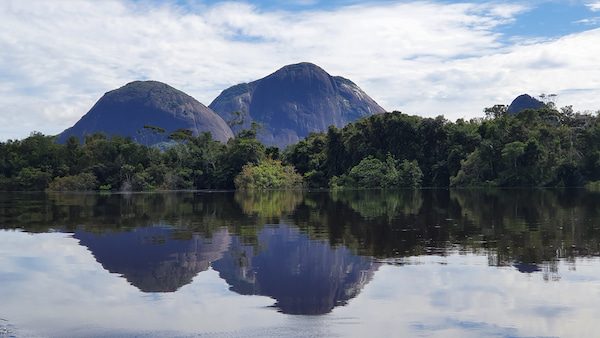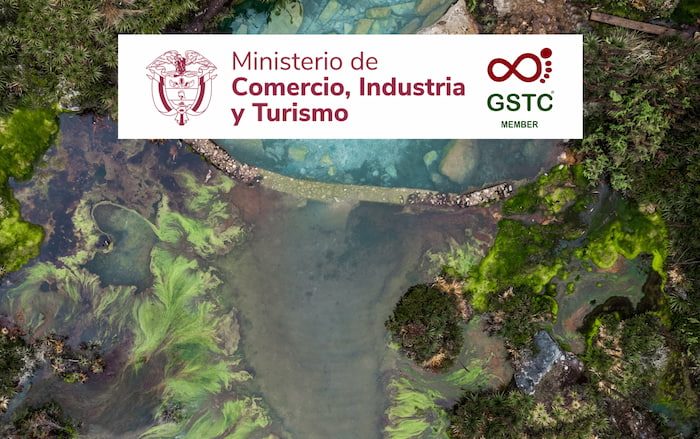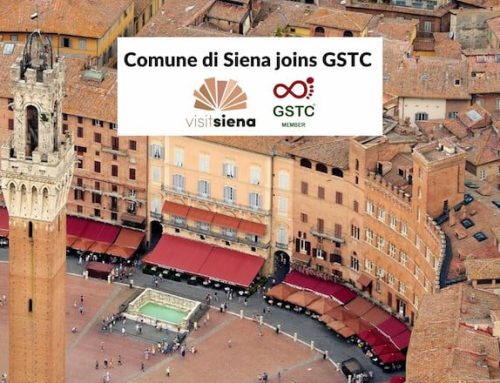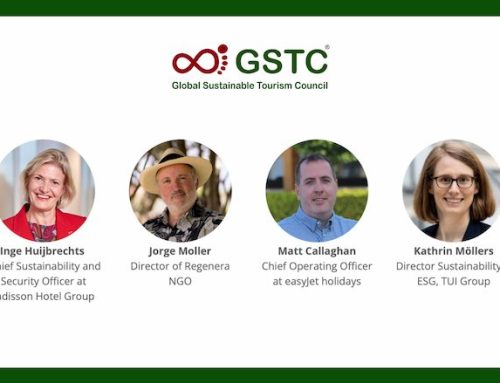The Colombian Ministry of Commerce, Industry and Tourism has joined as a Member of the Global Sustainable Tourism Council (GSTC)
Colombia is celebrated for its vibrant cultural mosaic and varied geography, stretching from the Caribbean and Pacific coastlines to the impressive Andes Mountains. Colombia is listed as one of the world’s “megadiverse” countries, hosting close to 10% of the planet’s biodiversity. Worldwide, it ranks first in bird and orchid species diversity and second in plants, butterflies, freshwater fishes, and amphibians (CBD,2024). Its capital, Bogotá, showcases a striking juxtaposition between the historic La Candelaria neighborhood, a colonial sector with cobbled streets and centuries-old churches, and the modern cityscape, highlighted by contemporary buildings like the BD Bacatá.
Sustainability in Colombia

Colombia has tools, institutions, policies, and strategies in place to support its sustainable development and sustainable investments, all of which focus their efforts across three areas: social justice, environment conservation, and economic prosperity. Some of the most significant include:
- Responsible Investment Task Force: A space for stakeholders, both public and private, who work to articulate efforts and good practices in sustainable investment in Colombia.
- Green taxonomy: A system of classification of economic activities and assets focused on achieving the country’s objectives and commitments related to sustainability.
- Circular economy: Colombia has developed strategies for the transition towards circular business models that promote appropriate waste use.
- Climate action laws and ban of single-use plastics: The country has passed climate action laws focused on ending single-use plastics, banning the manufacturing, import, export, marketing, and distribution of single-use plastics across the national territory. It has also joined the Global Plastic Initiative and is implementing the action plan for reduction and substitution.
- Sustainable Tourism Policy: The Country has developed a policy instrument to improve and harmonize tourism development with the country’s natural capital.
The Minister of Commerce, Industry and Tourism, Germán Umaña, emphasized: “To Colombia, the country of beauty, it is essential to join efforts in the economic transition and the protection of nature. By joining the GSTC, we hope to strengthen our sustainability management through exchanging experiences with other member countries, as well as to lead transformations with the good practices that Colombia is implementing in developing its Sustainable Tourism Policy”.
Latin American and Caribbean GSTC Summit
The 1st Latin American and Caribbean GSTC Summit is being held in the city of Santa Marta, Colombia, from May 27 to May 29, 2024. This closed event, organized by the Global Sustainable Tourism Council (GSTC) in collaboration with the Ministry of Commerce, Industry and Tourism of Colombia, the Destination Nature Activity (DNA) Program from USAID, Fondo Nacional de Turismo de Colombia (Fontur), the Santa Marta City Hall, and Swisscontact, aims to lead and promote sustainability and regeneration in the tourism sector.
This Summit is a closed meeting between specialists on the subject, representatives from the private and public sectors, academia, and non-governmental organizations from Colombia, Latin America and the Caribbean, and other regions to exchange experiences, agree on recommendations for priority actions to be developed, and establish a framework for collaboration in the region. The goal is to enhance sustainable tourism and lead the conservation of great biodiversity and its ecosystem services, sociocultural values, and sustainable economic development.
GSTC Welcomes The Colombian Ministry of Commerce, Industry and Tourism
“We warmly welcome the Colombian Ministry of Commerce, Industry and Tourism as a new member of the Global Sustainable Tourism Council. Their commitment to environmental responsibility demonstrates a deep respect for both their community and natural surroundings. We look forward to Colombia’s continued progress and success in their sustainability journey,” said Randy Durband, CEO of GSTC.
GSTC encourages destinations pursuing sustainability practices in tourism development and management to join as GSTC members and apply the GSTC Destination Criteria, which eventually can help achieve certification by a GSTC-Accredited Certification Body.
About the Colombian Ministry of Commerce, Industry and Tourism
The primary objective of the Ministry of Commerce, Industry, and Tourism, within its jurisdiction, is to formulate, adopt, direct, and coordinate general policies on the country’s economic and social development related to competitiveness, integration, and development of the productive sectors of industry, micro, small, and medium enterprises, foreign trade of goods, services, and technology, the promotion of foreign investment, domestic trade, and tourism; and to implement these policies, general plans, programs, and projects for foreign trade.
Among the general functions of MINCIT are:
- Participating in the formulation of economic and social development policies, plans, and programs.
- Formulating tourism policies aimed at strengthening the competitiveness and sustainability of Colombian tourism products.
- Coordinating the Administrative Sector of Commerce, Industry, and Tourism.
- Coordinating the implementation of its plans and programs with territorial entities and providing them with advisory, cooperation, and technical assistance within its competence.
More information here: https://www.mincit.gov.co/inicio
About the GSTC
The Global Sustainable Tourism Council® (GSTC®) establishes and manages global sustainable standards, known as the GSTC Criteria. There are three sets: Destination Criteria for public policy-makers and destination managers, Industry Criteria for Hotels and Tour Operators, and MICE Criteria for Venues, Event Organizers, and Events & Exhibitions. These are the guiding principles and minimum requirements that any tourism business or destination should aspire to reach in order to protect and sustain the world’s natural and cultural resources while ensuring tourism meets its potential as a tool for conservation and poverty alleviation.
The GSTC Criteria form the foundation for GSTC’s assurance role for Certification Bodies that certify hotels/accommodations, tour operators, and destinations as having sustainable policies and practices in place. GSTC does not directly certify any products or services, but provides accreditation to those that do. The GSTC is an independent and neutral USA-registered 501(c)3 non-profit organization that represents a diverse and global membership, including national and provincial governments, leading travel companies, hotels, tour operators, NGOs, individuals and communities – all striving to achieve best practices in sustainable tourism.
Information for media and the press: www.gstcouncil.org/about/for-the-press/
Statements expressed in this announcement are presented for informational purposes only and should not be taken as an endorsement or recommendation by GSTC, unless clearly stated.





